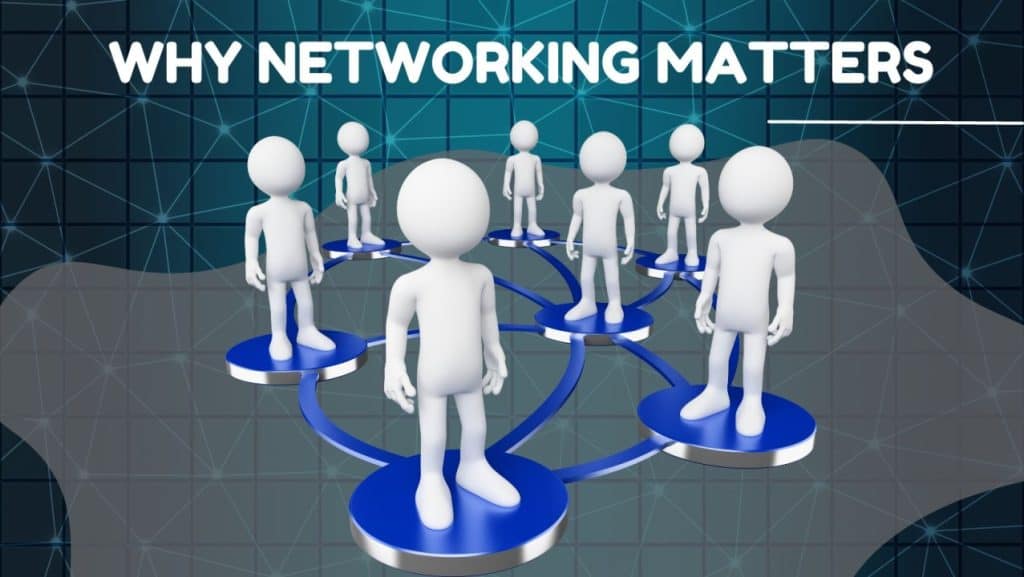If you’re feeling discouraged by job rejections, ghosted applications, or the sheer overwhelm of finding that one opportunity—breathe. You’re not alone.
The job market today can feel like a maze, whether you’re hunting for a remote role, an in-office position, or something flexible in between. But here’s the truth: most great jobs don’t get posted—they get passed on through people.
That’s why mastering how to network for a job is not just a bonus—it’s essential. And before you think networking is all about stiff handshakes or awkward small talk, think again.
It’s about building real connections, showcasing your value authentically, and being intentional with every interaction.
In this guide, I’ll share 13 pro tips on how to network for jobs—practical, real-world strategies that will help you open doors you didn’t even know existed.
What Is Networking?
Networking is more than just swapping business cards or adding people on LinkedIn—it’s the art of building genuine, mutually beneficial relationships that can help you grow professionally.
At its core, networking is about connection and value. It’s about people helping people.
Whether you’re seeking a remote role, an in-office position, or freelance work, networking creates opportunities that job boards often can’t.
It opens doors to hidden jobs—those roles that never get posted publicly but get filled through personal referrals and word-of-mouth.
Networking doesn’t mean you need to be outgoing or know “important” people. It simply means reaching out with purpose, listening, asking thoughtful questions, and staying visible in the circles that matter to your career goals.
It’s something anyone can learn—and you’re about to learn how to do it like a pro.
Why Networking Matters More Than Ever Today

(Source: LinkedIn)
In today’s job market, sending out dozens of resumes and waiting for a response just isn’t enough. Many roles are never advertised publicly—they’re filled through connections, recommendations, and referrals.
That’s why networking has become one of the most powerful tools for landing a job, especially in a competitive or uncertain economy.
Employers often trust personal referrals over cold applications because they’re faster, more reliable, and come with a built-in layer of credibility.
And with the rise of remote jobs, online freelancing, and hybrid work setups, the ability to connect virtually has made networking not only easier—but essential.
Whether you’re changing industries, re-entering the workforce, or searching for your first remote role, the right connection can lead to the opportunity you’ve been waiting for.
Networking isn’t just helpful anymore—it’s how jobs are found.
13 Pro Tips on How to Network for Jobs
If you’ve been tirelessly applying for jobs with little to no response, it’s easy to start questioning your worth or the entire job-hunting process. But the truth is, it’s not always about your qualifications—it’s about who knows you and how they remember you.
That’s where networking comes in—not as a trick, but as a real-world strategy to help you get seen, heard, and remembered in the right circles.
Here are 13 expert-level yet human-centered tips on how to network for jobs—designed especially for people like you who may be tired, unsure, or just starting over.
Let’s begin with the first and most important shift:
1. Start With Who You Already Know
When people think of networking, they often imagine reaching out to strangers on LinkedIn or attending big events filled with unfamiliar faces. But effective networking doesn’t start there—it starts with your existing circle.
Look around. Think about former coworkers, classmates, managers, mentors, clients, even people from your gym, church, or local community.
These are people who already know you, even if just a little—and that familiarity is your greatest asset. You don’t have to impress them from scratch. You simply need to reconnect.
Start small. Reach out to one person today. Send a short message:
“Hey [Name],
I’ve been job searching lately and wanted to reconnect. If you hear of any openings in [industry/type of role], I’d be grateful to be considered or pointed in the right direction. Hope you’re doing well!”
This simple act does three things:
- It reminds them that you exist.
- It makes them aware of your needs.
- It opens the door to further conversation without pressure.
Many people want to help—but they won’t know how unless you let them in.
And here’s something powerful to remember: you don’t have to ask for a job—just for guidance or connection. That removes the awkwardness and makes it easier for others to respond.
So before you dive into networking events or cold messages, look around. Your next opportunity could already be a few contacts away.
2. Be Clear About What You’re Looking For
One of the biggest mistakes job seekers make while networking is being too vague.
If you say, “I’m open to anything,” it makes it harder for people to help you. Clarity creates connection. People can’t refer or recommend you unless they know what you’re aiming for.
Instead of saying, “I’m looking for a job,” try something more specific, like:
“I’m looking for remote customer service roles in the healthcare industry.”
Or: “I’m transitioning into digital marketing and looking for entry-level or freelance opportunities.”
The more specific you are, the easier it is for others to match you with potential roles, refer you to the right people, or even offer advice that fits your goals.
Don’t worry if your goal isn’t perfectly defined yet.
Even saying, “I’m exploring remote opportunities in content writing or social media management,” gives your network something to work with. You can always refine as you go.
Remember, you don’t have to sound perfect—you just have to be clear and real. That kind of honesty builds trust and makes people want to support you.
3. Make Networking a Habit, Not a One-Time Event
Job seekers often treat networking like a quick task—something to do once and hope for the best. But real networking works like planting seeds. It takes consistent effort and follow-up to grow into something meaningful.
Set small, manageable goals.
For example, connect with one person a day or reach out to three people a week. These don’t have to be long conversations.
A simple message to check in, ask a question, or share something valuable keeps you visible and builds rapport over time.
Also, make sure to follow up. If someone gave you advice or introduced you to someone else, thank them and let them know how it went.
This small gesture makes a huge difference—it shows you value their time, and it keeps the relationship warm for future opportunities.
Networking isn’t about asking once and disappearing. It’s about showing up, staying present, and building trust one step at a time.
4. Use LinkedIn the Right Way (Even If You’re Not a Fan)
If you’re not already using LinkedIn, now’s the time to start. And if you’ve been using it passively, it’s time to be more intentional.
You don’t need to post every day or become an influencer. You just need to be visible, searchable, and active enough for others to find and connect with you.
Start by updating your headline with the job you’re seeking, like:
“Aspiring UX Designer | Passionate About Creating Accessible User Experiences”
or
“Remote Customer Support Specialist | Helping Businesses Deliver Better Service”
Then, interact. Like and comment on relevant posts. Reconnect with former colleagues. Follow companies you’re interested in and engage with their content.
Even one thoughtful comment on a recruiter’s post can lead to a direct connection or conversation.
LinkedIn is your digital business card, resume, and introduction—all rolled into one. Use it to your advantage, even if just 10 minutes a day.
A must-read: How to Find Unique Impressions on LinkedIn
5. Don’t Be Afraid to Ask for Informational Interviews

One of the most underrated networking strategies is the informational interview. This is when you ask someone for 15–20 minutes of their time to learn about their job, company, or industry—not to ask for a job, but to learn.
Why does this matter? Because people love to talk about themselves, and if you approach them with genuine curiosity, they’ll often share valuable insights—and even introduce you to others in their network.
Here’s an example message:
“Hi [Name], I admire your work in [field/company], and I’m exploring similar roles. Would you be open to a quick chat so I can learn more about your journey and what skills are most valuable in your role?”
Keep the tone friendly, and brief. Be respectful of their time. Many people will say yes, especially if you’re polite and professional.
You’d be surprised how many doors can open from just one 15-minute conversation.
Must read: 10 Interview Tips for Freelancers
6. Attend Virtual and In-Person Events—Even If You’re Nervous
Yes, networking events can feel intimidating—especially if you’re already exhausted from job hunting. But attending even one event (online or in person) can shift your momentum.
Look for small, niche meetups, webinars, workshops, or industry-specific events. These don’t have to be massive conferences. Sometimes the best conversations happen in small, focused spaces.
If you’re introverted or shy, start with virtual events. They often offer breakout rooms or chat-based interactions that feel more manageable.
Prepare a short personal introduction so you’re not caught off guard when someone asks, “What do you do?” or “What brings you here?”
Showing up, even if you’re nervous, builds your confidence—and often leads to unexpected conversations that can move your job search forward.
7. Add Value Before You Ask for Anything
One of the most effective ways to stand out while networking is to offer something first—before you ask for anything in return.
This could be as simple as sharing a helpful article, tagging someone in a relevant post, or introducing two people who might benefit from knowing each other.
When you lead with value, you create goodwill. People are more likely to help you when they see that you’re thoughtful, resourceful, and not just out to take.
Let’s say you’re reconnecting with an old coworker. Instead of saying, “Can you help me find a job?”, try:
“Hey, I came across this marketing tool you might find useful for your new role. Also, I’m on the job hunt—let me know if you hear of any openings in content creation!”
This small act shows that you’re not just a job seeker—you’re a giver, a connector, and a professional worth remembering.
Related: 10 Clever Ways to Set Competitive Rates for Freelance Projects
8. Reconnect with Old Colleagues and Classmates
Sometimes the best connections aren’t new—they’re people from your past. Former coworkers, supervisors, classmates, or even that one person from a training you barely remember… these people can become powerful allies.
Why?
Because you’ve already shared an experience. There’s an existing layer of trust that’s easier to build on than starting fresh with a stranger. You don’t have to reconnect with everyone.
Pick a few you genuinely liked or respected, and send a warm message.
Example:
“Hey [Name], I was thinking about our time at [Company/School], and I realized how much I appreciated working with you. I’m currently exploring new job opportunities in [your field], especially remote roles. If you hear of anything or know someone I should talk to, I’d be grateful.”
Keep it real. Keep it warm. You’ll be surprised how many people say, “I’m so glad you reached out!” Sometimes, the help you need is just one message away—but you have to make the first move.
9. Join Niche Online Communities and Forums
While LinkedIn is powerful, it’s not the only place to network. Online communities tailored to your industry, interests, or even job search status can be gold mines.
Think Slack groups for UX designers, Facebook groups for remote workers, Reddit threads for freelancers, or Discord servers for coders.
These spaces often feel more casual and conversational than formal networking sites.
You can ask questions, offer insights, share job leads, or just observe what others are doing. Over time, your name becomes familiar—and that’s how trust builds in a community.
Don’t just drop in and ask for a job. Instead, introduce yourself, engage with posts, and contribute where you can. For example:
- Share a free resource you found helpful.
- Congratulate someone on a job win.
- Answer a beginner’s question in an area you know well.
You never know who’s watching—and who might DM you later saying, “Hey, I saw your post and I think you’d be a great fit for this role.”
10. Volunteer or Freelance to Build Your Network and Credibility

If your job search has stalled, volunteering or freelancing—even short-term—can do more than just fill a gap on your resume.
It puts you in motion and puts you in contact with people who might help in ways you didn’t expect.
Volunteering at a nonprofit, helping a local business with their social media, or even offering to review resumes in a job-seeking group are all ways to:
- Keep your skills sharp
- Expand your network
- Get referred to paid opportunities
In many cases, someone who sees your effort will think: “If this person is this committed for free, imagine what they can do on payroll.”
Start small. Offer a few hours a week doing something in your field—or adjacent to it. Every interaction is a chance to build trust and visibility, and that’s what networking is really about.
11. Learn to Tell Your Story Confidently
When networking, you’ll often be asked: “So, what’s your background?” or “What do you do?” Many job seekers fumble here—especially if they’re between jobs, changing careers, or just unsure.
This is where your personal story becomes a powerful tool. You don’t need a perfect script, but you do need a clear, honest, and confident answer.
Here’s a simple structure to help you craft yours:
- Where you’ve been: A quick summary of your relevant experience.
- What you’re doing now: Even if it’s job searching, own it.
- Where you’re going: What kind of role you’re seeking.
Example:
“I’ve spent the last few years in customer support, mostly in e-commerce. Right now, I’m looking for remote roles where I can continue helping users—especially in companies focused on wellness or tech. I’m also taking a few online courses to sharpen my skills in chat support and CRM platforms.”
This kind of answer builds confidence—in you and in the person listening. You’re showing clarity, ownership, and momentum—even if you’re still on the journey.
12. Don’t Take Rejections Personally—Build on Them Instead
One of the hardest parts of networking (and job hunting in general) is rejection—or worse, being ignored. It’s easy to internalize a “no” or feel defeated when someone doesn’t reply. But here’s the truth: It’s not always about you.
People are busy. Emails get buried. Messages are forgotten. That doesn’t mean you failed—it means life got in the way.
So what can you do?
- Follow up once or twice after a reasonable period (e.g., a week or two).
- Use the experience to improve your approach—tweak your message, clarify your ask.
- Stay gracious. Thank people even if they say “no.” That respect leaves a good impression.
Every rejection can teach you something: how to be clearer, how to follow up, or how to approach the next person differently. This mindset shift is essential for staying strong during a long job search.
13. Keep Showing Up—Even When It Feels Pointless
This final tip might be the most important one: Don’t give up on networking just because it’s not yielding immediate results. Networking is not a sprint—it’s a slow build that can pay off months (even years) down the road.
You may not see the effects right away. You might go weeks without a meaningful reply. But then, seemingly out of nowhere, someone reaches out because they remembered your message. Or someone tags you in a job post. Or you finally get that interview.
The key is consistency. Keep reaching out. Keep learning. Keep growing your presence in the places that matter.
It’s okay to take breaks when you need to. But don’t disappear. You matter. Your work matters. And your next opportunity might just be one connection away.
Signs You Are Networking Wrongly

While networking is a powerful tool for job seekers, doing it the wrong way can sabotage your efforts.
Many people make subtle but critical mistakes that create negative impressions or render their efforts ineffective.
Here are clear signs you might be networking the wrong way—and how to correct them.
You Only Reach Out When You Need Something
Networking is a two-way street. If the only time you message people is when you’re job hunting or need a favor, it sends the message that you’re self-serving.
Effective networking is about building genuine relationships over time, not making last-minute requests.
Start by checking in, sharing helpful resources, or supporting others’ work before asking for help.
You’re Talking Too Much About Yourself
While it’s important to share your goals and experience, dominating the conversation with your achievements can turn people off.
Good networking involves listening, showing interest in others, and finding ways to be mutually beneficial.
If your conversations are all about you, you’re missing the point.
You’re Not Doing Any Follow-Up
Failing to follow up after a meeting, conversation, or event shows a lack of professionalism and interest.
A short thank-you email or message can go a long way in keeping the connection alive.
Ignoring follow-up means missed opportunities to deepen relationships and build trust.
You’re Asking for a Job Too Soon
A common mistake is jumping straight to, “Are there any openings?” during a networking conversation. This approach feels transactional and often puts people on the defensive.
Instead, focus on learning about the person’s work, the company culture, and industry insights. Let the relationship grow organically.
You Don’t Personalize Your Messages
Generic LinkedIn requests or copy-pasted emails come across as lazy. If you’re not taking the time to personalize your message—like referencing shared interests, connections, or specific reasons for reaching out—you likely won’t get a response.
Tailored communication shows effort and genuine interest.
You’re Ignoring Online Etiquette
Being too pushy online, messaging people repeatedly without a reply, or commenting inappropriately on posts are all red flags.
Online networking still requires professional conduct. Be polite, patient, and respectful of others’ time and space.
You’re Not Offering Any Value
Networking isn’t just about getting something—it’s about giving, too. If you’re not sharing useful insights, making introductions, or offering help when you can, you may be seen as a taker.
Even small gestures like sending an article or congratulating someone on a promotion help build rapport.
Frequently Asked Questions
Question: What do you say when networking for a job?
Answer: When networking for a job, aim to be genuine, clear, and respectful. Start with a brief introduction about who you are, what you’re looking for, and why you’re reaching out. It’s okay to be honest about your job search, but avoid sounding desperate or overly formal.
Here’s a simple message template you can adapt:
“Hi [Name], I hope you’re doing well. I came across your profile and really admired your experience in [industry or role]. I’m currently exploring new opportunities in [your field], especially [remote/onsite] roles in [specific area if applicable]. I’d love to connect and hear your thoughts on how to best approach my search. Thank you for your time!”
Keep it conversational. People respond better to sincerity than a copy-and-paste pitch.
Question: How do you network as a beginner?
Answer: Networking as a beginner might feel intimidating, but it’s completely doable with a few basic steps:
- Start small – Begin with friends, family, former classmates, or coworkers.
- Join online communities – Facebook groups, LinkedIn groups, and forums relevant to your industry are great places to meet professionals.
- Attend virtual events or webinars – These spaces are excellent for practicing introductions and learning from others.
- Prepare a short personal pitch – A sentence or two about who you are, your skills, and what kind of job you’re seeking.
You don’t need a huge network to start. Even one quality connection can lead to surprising opportunities. Be consistent, curious, and willing to learn from others.
Question: What are the 3 C’s of networking?
Answer: The 3 C’s of networking are:
- Clarity – Know what you want and how to communicate it. Be clear about your goals, the type of role you’re seeking, and what you bring to the table.
- Confidence – You don’t need to have all the answers, but believe in your ability to learn and grow. Speak with purpose and self-respect.
- Consistency – Networking takes time. Follow up, stay visible, and engage regularly. Even small actions build long-term relationships.
When you approach networking with these principles in mind, you’ll build not just contacts—but connections that count.
Question: How to network when you’re an introvert?
Answer: Introverts can be excellent networkers because they often excel at listening, building deeper relationships, and thinking before they speak—key qualities in meaningful networking.
Here are a few tips:
- Leverage written communication – Start with emails or LinkedIn messages. Introverts often feel more comfortable expressing themselves in writing.
- Set realistic goals – Aim to connect with 1–2 people a week instead of trying to network with everyone at once.
- Prepare talking points – Whether for a virtual coffee chat or a message, having a few go-to questions or phrases makes interactions smoother.
- Choose 1:1 over group events – Smaller settings can feel less draining and more genuine.
Remember, quality trumps quantity. As an introvert, you can build a powerful network by being thoughtful and authentic.
🔑 Key Takeaways: Mastering How to Network for a Job

✅ Networking is not about asking for a job—it’s about building relationships. When you focus on genuine connection, information sharing, and mutual respect, doors begin to open naturally.
✅ Start small and build steadily. You don’t need hundreds of contacts. Even a single conversation can lead to your next big opportunity if nurtured with care and follow-through.
✅ Be proactive, not passive. Reach out, ask thoughtful questions, and follow up. Remember—people are often more willing to help than you think, especially when approached with sincerity.
✅ Tailor your networking to your personality. Whether you’re extroverted or introverted, there’s a way to make networking work for you. From online connections to one-on-one chats, choose what aligns with your energy and strengths.
✅ Stay encouraged. The job search can be frustrating, but networking is one of the most powerful tools you have. It’s not just about finding a job—it’s about finding your people.
Your Network Is Your Net Worth—Use It with Confidence
In today’s crowded and competitive job market, sending out resumes isn’t enough. Networking isn’t just a “nice-to-have” anymore—it’s your secret weapon.
Whether you’re looking for a remote role, trying to reenter the workforce, or shifting careers entirely, the right connections can shorten your path and open doors you never knew existed.
You don’t have to be outgoing, experienced, or well-connected to start. What you do need is the willingness to reach out, follow up, and show up—authentically.
People want to help. They remember kindness, curiosity, and genuine interest far more than flashy résumés.
So take a deep breath, refocus your energy, and start where you are. One message. One coffee chat. One follow-up.
You’re not alone in this. And the next person you connect with might just know someone who’s hiring.
You’ve got this.









